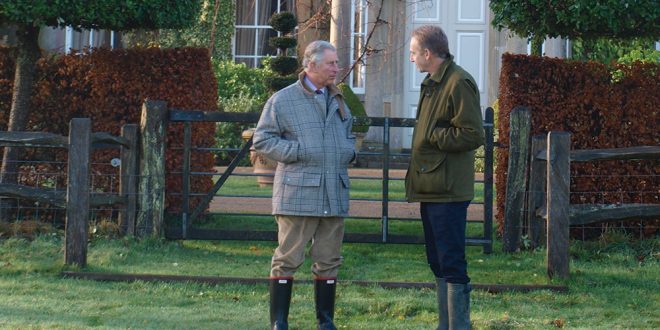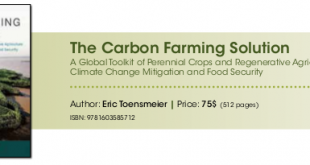The Farmer and His Prince
Soil fertility? Biodynamic diversity? Appropriate livestock farming? Why does that concern me? To start with, I fear that the fairy tale around this farm will not last the 80 minutes. Because the subject matter of which the dream is made can also be quite dry sometimes. But my fear is unfounded. From the first word, a story is interestingly narrated, and packaged between superb pictures and sensitive music. The film “The Farmer and His Prince” is not allowed to be shown in Britain. Apparently the Queen is not in favour because her son, the Prince of Wales and heir to the British throne, plays a very political main role in it, as an ecologist and conservationist. That’s why I’m telling you the story here and now in Portugal.
“The Farmer and His Prince” lasts for 80 minutes and is set in the small town of Tetbury in the English county of Gloucestershire. That is where the sustainably run Duchy Home Farm can be found, which covered around 360 hectares in 1986 and belongs to one Charles Windsor. In the last 30 years, the estate has more than doubled in size, to around 760 hectares. The farm has doubtless become an economic success story because, contrary to expectations and with almost no subsidies, it has made a profit in most years to date. Charles has David and his team to thank for that, as well as the concept on which it is based. Around 120 hectares of the farm are permanent pasture. Up to 80 different plants grow there. “We then take the hay from the best meadows to the other fields,” a voice says off-camera, “to spread the seeds around. And then we also have the alternating clover fields, which permanently rotate. Every three years, they are transferred, and are then planted with different crops each year,“ says David Wilson, the farmer in this story. From the point of view of the health of crops and animals, this is a definite advantage, he adds. In this way, you can break cycles of parasites, disease and weeds and need no chemicals. He says it is about ensuring that the soil is naturally fertile. That makes sense to me as an observer.
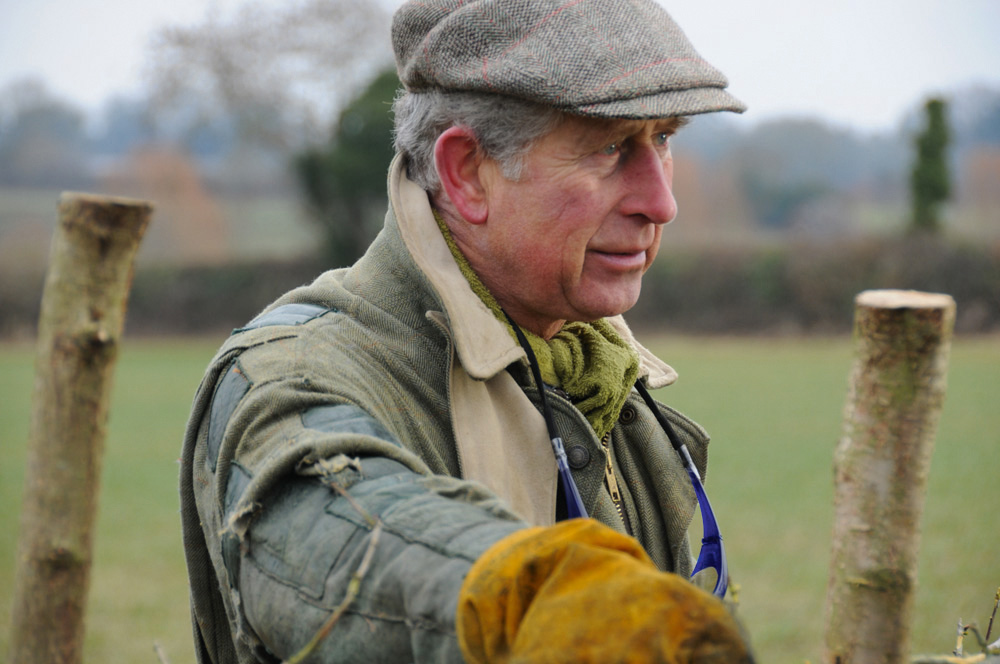
Charles had and still has his vision. He wanted to convert the farm to organic agriculture and when David Wilson applied for the position of farm manager at Duchy Home Farm, the Prince asked him if he wanted to try out organically sustainable agriculture. He didn’t really know what that meant at the time, but said YES. After all, it was a job interview and you always say yes. That was the start of an interesting journey for the farmer, during which his eyes were opened to an alternative kind of food production, without chemicals and alongside Prince Charles.
That this can function, and how well it can do so, is what the German director and filmmaker Betram Verhaag portrays in his documentary “The Farmer and His Prince”. The admirable, often calm and beautiful images by his four cameramen Gerald Fritzen, Waldemar Hauschild, Pauli Hien and Hans Albrecht Lusznat, who assembled a very impressive piece of work over five years, manage to keep the story moving from one scene to the next. The ability to play with beautiful images is one of the strengths of film as a genre. You put a story together from a puzzle, and then turn it into a film.
How to tell the story, and how to get it into the soul of the viewer? For example, how does the editor Melania Singer cut the scenes in such a way that they not only produce a deeper meaning but also enliven, refresh and ultimately move?
It’s a success. Well worth seeing. The film has brilliantly captured a topic that could also be shown more widely at schools and universities, because life in harmony with nature is a basis and a goal, which could bring us a good deal closer to inner happiness. After all, that’s where we want to get to. We set off on a journey and seek out an honest and ethical concept, work at it conscientiously and, over the years, gain deep insights into how nature works. We don’t accompany it and dominate it, but become part of the whole. I end the film with a good feeling. It shows me that there are still some success stories to be told on this planet.
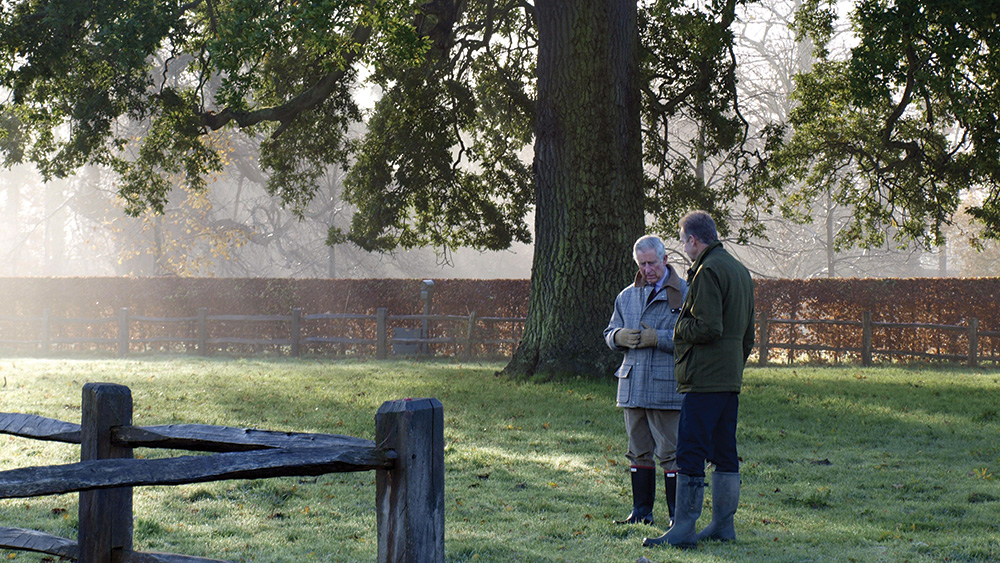
Anyone seeing this film will also have the impression that conventional agriculture has lost direction, the concept of living and working with nature. A farmer whose potatoes (with which he wants to earn money) are suffering from an epidemic of rot in the fields resorts to chemicals and sprays Bayer, Monsanto or Syngenta and risks his healthy life and that of others, in the hope that he can bring the rot to a halt. The film discusses in concrete terms the possibility of avoiding this potato rot from the outset. But to do so, you need healthy soil that is rich in nutrients, you have to maintain it, give it something and not only take from it. The same applies to wheat, to trees and fruit, to the fair treatment of animals such as cows and sheep, pigs and chickens, etc. They must be kept in an appropriate way, be able to run around freely and be well fed. Only then will sheep’s wool be of value again, be fairly traded, and milk and eggs and many other agricultural products close to the consumer.
The film also shows the labour-intensive life based on positive knowledge and the desire to adopt organic agriculture, divided into small sections and avoiding monocultures. It doesn’t require expensive chemicals or gene technology, which destroy the soil, the fields and the plants; rather, it uses dung and liquid manure as a natural source of nitrogen, plus old knowledge: the soil needs to rest once in a while too. Because once the soil is destroyed, conventional agriculture will have less and less to harvest in the long term. For a global population that is still growing.
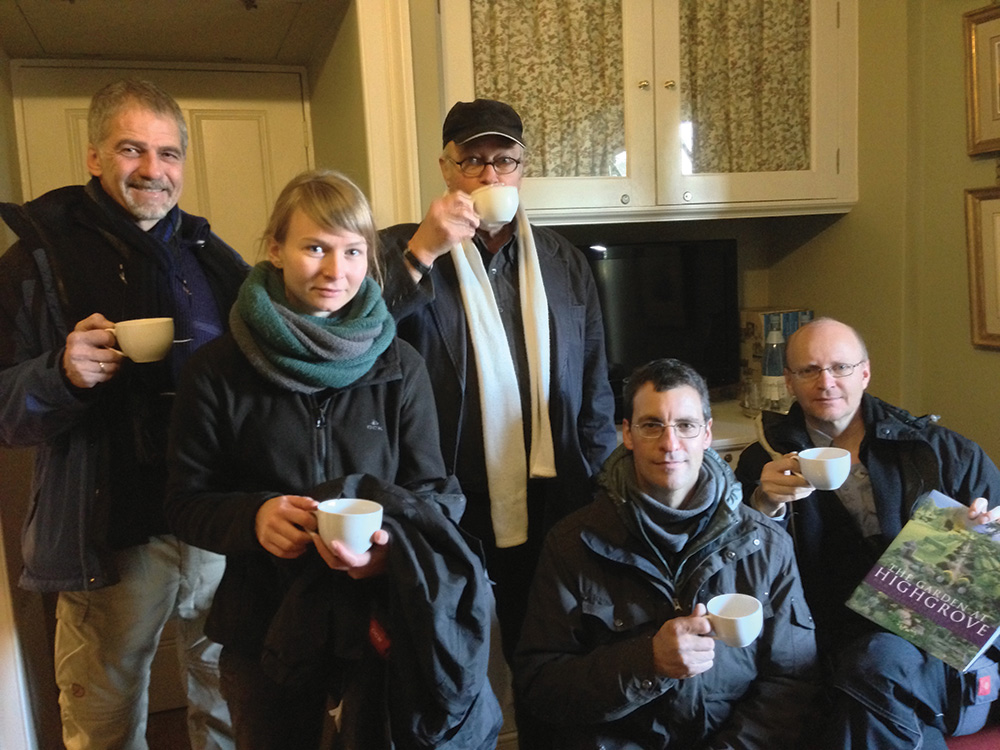
The film manages to show Price Charles as hardly anyone knows him: a calm, knowledgeable and sometimes thoughtful person, who himself lends a hand in creating traditional living hedges and who is concerned about his and our Mother Earth. He has clear opinions and stands firm, he takes his little bit of power and makes something of it. The filmmaker Bertram Verhaag must be given credit for his excellent direction. The 80 minutes are an important investment with a sustainable return.
 Eco123 Revista da Economia e Ecologia
Eco123 Revista da Economia e Ecologia

